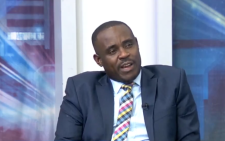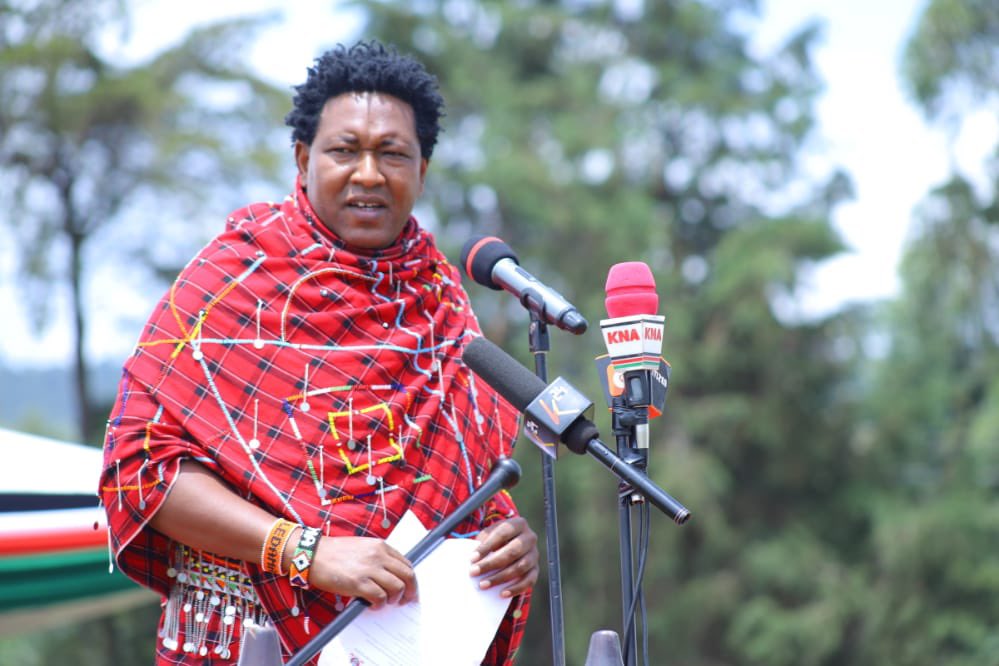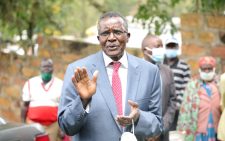Empty tummies, billion-shilling displays fuelling Kenya’s outrage

On a sweltering Saturday morning in Likoni, Mombasa county, Mwanajuma Ali trudges along the dusty roadside under the punishing sun, her infant daughter strapped to her back and another child limping beside her.
Visibly weary, the mother of three is on a desperate mission to find a spot at Shelly Beach Grounds where a political gathering is underway.
But Mwanajuma isn’t here for politics. She is hoping for a morsel of relief—maybe a free meal or some assistance. After failing to secure space under the tents, she settles under the open sky, enduring the heat as music and amplified chatter from a lacklustre emcee fills the air.
Soon, the familiar theatre begins—helicopters slice across the sky, signalling the arrival of VIP guests. The music grows louder, the cheers more frenzied. The sleek convoys of fuel-guzzlers roll in, bringing well-fed tripled-chinned politicians into the welcoming ululations of a crowd hungry not just for food, but for hope.
Branded as a youth and women empowerment drive, the event quickly morphs into a showcase of political might and money. From the podium, Majority Leader Kimani Ichung’wah plays the now-familiar charade.
“Nichomoe nisichomoe? Nimwage nisimwage?” (Should I unleash? Should I give it out?) he teases, holding wads of cash aloft.
“Laki moja? Mbili?” (One hundred thousand shilling? Two hundred…) Then, amid thunderous cheers, he declares: “Nitamwaga milioni moja na nusu!” (I’m giving out Sh1.5 million).
Obscene opulence
Deputy President Kithure Kindiki is next. “Do you want to know how much the president sent? Sh50,000? No? Sh100,000?” He works the crowd, pressing for support of President William Ruto’s second term before announcing: “The president has sent Sh3 million.”
He then adds another Sh1.5 million, his own contribution.
In a single day, Kindiki gives out more than Sh6 million in two separate functions in Likoni and Jomvu. Other officials follow suit—Sports Cabinet Secretary Salim Mvurya splashes Sh500,000, Mining, Blue Economy and Maritime Affairs CS Hassan Joho dishes out Sh1 million, while MPs give out between Sh100,000 and Sh200,000 in every event they go to in Mombasa, Kwale and Lamu.
But for citizens like Mwanajuma, the fanfare brings little comfort.
“We barely afford two meals a day,” she says, “I depend on casual work, and even that is hard to come by now. I don’t know where these people get such money.”
In a country chocking under heavy taxation, where civil servants face delayed salaries and public debt balloons past Sh10 trillion, such displays of opulence have triggered outrage and resistance.
It is the kind of excess that helped ignite the Gen Z-led protests that rocked the nation in June last year. The movement, born online but felt across the streets, became a cry of anger — not just over the controversial Finance Bill, but decades of betrayal, impunity and elite arrogance.
Yusuf Lule, executive director of Human Rights Agenda (HURIA), was blunt condemning the continued show of opulence.
“What we’re witnessing is an insult to the taxpayer,” he says, “It’s disturbing to see politicians openly campaigning under the guise of empowerment forums. We have legal channels for such programmes — Youth Enterprise Fund, Women Fund, Hustler Fund. So, where is this cash coming from?”
Illegal campaigns
Lule also questions the legality of these events, pointing out that Kenya’s Elections Act bars campaigns outside the official three-month election window.
“This kind of cash handouts and flexing of financial muscle is precisely what Gen Z rejected. It’s unacceptable.”
Machakos Deputy Governor Francis Mwangangi recently condemned the display of opulence, saying the ongoing “empowerment” tours violated principles of equitable resource allocation.
“During Kibaki’s era, we saw institutionalised empowerment through structured funds. That’s what we need — not populist gimmicks.”
Dr Richard Bosire, a senior political science lecturer, says the handouts point to blatant misuse of public resources.
“Incumbents are prohibited from using State money or machinery for political advantage. But that’s what we are seeing — from vehicles to personnel and cash. If the money is public, where is the budget? Who approved it? If it’s private, where’s the transparency?” he asks, warning that this trend undermines democracy and risks tilting the 2027 electoral playing field.
“Without hesitation, I can say the incumbent is already campaigning — illegally. If we let this slide, we normalise impunity and erode electoral integrity.”
Governance expert Professor Fred Ogola harangued a scathing critique of Ruto’s administration, calling it a government “built on public relations stunts.”
“The country feels like a failed state. PR is too much — too many foreign trips, flashy events with no real economic gains,” Ogola says. “We need to ask the hard questions: Can Kenyans access affordable healthcare? Is our education system working? Are we safe from abductions? Can we live decent lives? That’s where the focus should be — not these political theatrics.”
As the gap between the rulers and the ruled continues to widen, the fury in the streets, analysts say, is no longer just about taxes. It is about the dignity of ordinary Kenyans like Mwanajuma, who watch billions being thrown around while they walk barefoot in search of hope are concerned about such a situation.












